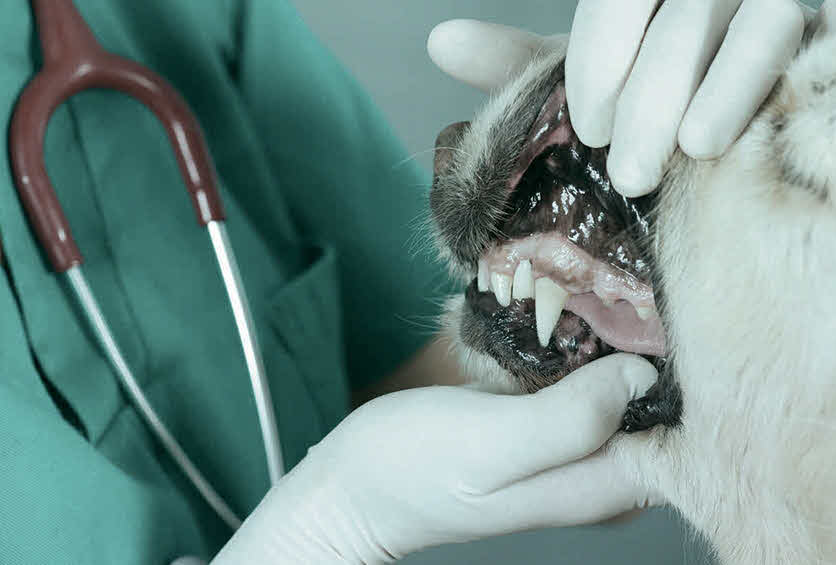
Dental disease is one of the most common problems diagnosed in pets, with Australian vets finding four out of five dogs and cats over the age of three years exhibit some level of dental disease.
In pets, dental disease can cause bad breath, infection and pain. It can also lead to serious illness, as if left untreated, infected gums can allow bacteria to enter your pet’s bloodstream and the bacteria can lodge in small blood vessels, most commonly in the liver or kidneys, which can cause life-threatening disease.
August is pet dental health month, and the Australian Veterinary Association (AVA) reminds pet owners, that having a regular pet dental health check with your veterinarian is important to detect and manage dental disease in pets.
“In partnership with your veterinarian good dental health for your pets is achievable, ensuring your pet stays happy and healthy”, said Dr Rod Salter, President of the Australian Veterinary Dental Society (AVDS), a special interest group of the AVA.
This involves ensuring your pet has regular vet health checks, which allows your vet the opportunity to examine your pet’s mouth and teeth, and if needed, schedule a dental scale and polish procedure. Vets will often also recommend the use of special dental diets and dental treats to help keep your pet’s teeth healthy.
Veterinarians can properly examine, diagnose and treat dental disease in pets with a professional veterinary dental cleaning procedure which is performed under a general anaesthetic to ensure a stress-free and pain-free experience for your pet.
Whilst your pet is anaesthetised, your veterinarian will inspect every tooth to check for underlying dental disease, and dental x-rays can be taken if needed. The pet’s teeth are then professionally scaled, cleaned and polished, and any infected or loose teeth can be carefully extracted.
With some non-veterinary individuals offering anaesthesia-free dentistry for pets, the AVDS highlights that these procedures do not provide adequate dental care for pets and can be painful and harmful.
Anaesthesia-free dental procedures are purely cosmetic and do not identify dental disease – which if left untreated can be painful and cause chronic health concerns. During August, book your pet in with your vet for a dental health check to receive the best professional advice around treating any dental disease your pet may have”, said Dr Salter.






